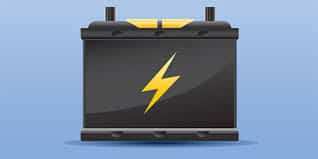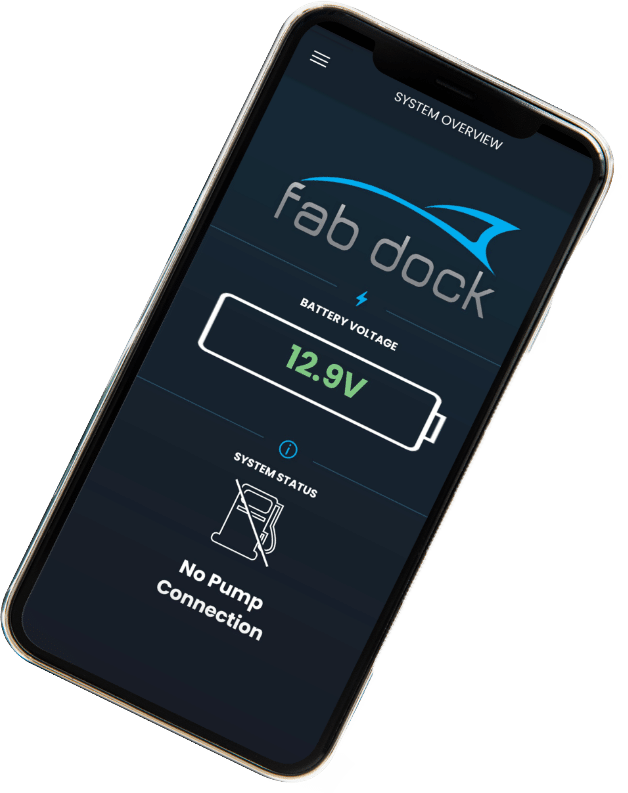For decades, the battery of choice for all marine vessels has been the lead acid type. This will eventually change to other types such as lithium ion as technology drives the price down. However, for the foreseeable future, boat owners will be stuck with the downsides of the tried and true lead acid type.
Lead Acid Batteries
They are heavy and discharge (go flat) even if nothing is connected to them, but at this point in time, they are the most economical type available. It just means that we have to take care of them to get the most out of them and make sure they have enough power in them when we need it, i.e. to start our engines when we want to come home.
For this exercise, we will only be talking about boats running 12 volt batteries and 12 volt appliances, even though 6 volt and 24 volt systems have many of the same characteristics.
A fully charged battery, not connected to anything, will read 12.8 volts. A battery at half charge will read 12.2 volts and a dangerously low battery will read 11.8 volts. There isn’t much room for error, so keeping your boat batteries charged is of paramount importance.
Don’t treat your boat battery like your car battery
A lot of boat owners make the mistake of treating their boat batteries like their car batteries, as in they don’t worry about them at all. Your car batteries are housed in a nice warm, dry engine bay and they get charged every time you drive your car, usually daily. Your poor boat batteries on the other hand are sitting in a damp, moist environment and may sit there for weeks without being charged by your engines.
A lead acid battery naturally discharges over time and this is only accelerated by the damp, cool environment of a boat. And a battery left in a discharged state has a higher chance of receiving permanent damage, or at the very least, shortening its lifespan. Just because a battery has no moving parts, doesn’t mean that it cannot be damaged and fail. Individual cells within a battery can collapse and fail, rendering the entire battery useless.
Therefore, some form of charging system is mandatory on every boat. But again, it isn’t a simple matter of buying the cheapest, smallest charger or solar panel that you can find from your local auto shop or camping store. It won’t make it through the first season. Like everything else that has to live on your boat, especially if it lives anywhere near salt water, it has to be designed to handle the rigours of the salt water environment. There are some great brands that understand this and make their product accordingly.
In the old days, a ten amp battery charger just shoved ten amps into your battery whether it needed it or not. So if you left it plugged in, you could run the risk of ‘cooking’ your battery. That has all changed with the advent of staged battery chargers. Seven stages became the norm and I have now seen nine stage battery chargers. These staged battery chargers are designed to be left attached 24/7 and cycle through a series of stages that actually condition your battery and prolong the life of your battery. This means that they will pay for themselves the next time you don’t have to replace your batteries.
Trickle Chargers
Trickle chargers are great for motorcycle or jetski batteries, but an average size boat battery requires some extra grunt. Opinions vary but I wouldn’t waste my time with anything less than a 20 amp charger. I recommend 25 amps to all my clients and have a 40 amp charger on my own boat. If you have multiple batteries for different purposes like engine start and house duties, a Voltage Sensor Regulator (VSR) will spread the charge around the various batteries as each battery becomes fully charged.
Solar Panels
Solar panels are a completely different discussion as their progress has been steadily improving as to their efficiency and the new semi-flexible panels make installation on boats even more attractive. I will save that for another blog.
Keeping your batteries clean
And lastly, keep your batteries clean, particularly the terminals. There are plenty of chemicals and sprays to stop your terminals and any connections mounted to them free of corrosion, rust and that nasty green stuff. This will keep a good flow of electricity to those things on your boat that need it and will make it easy to remove your batteries or add more appliances should the need arise.
Hopefully all this helps and makes your boating life easier and more enjoyable.



